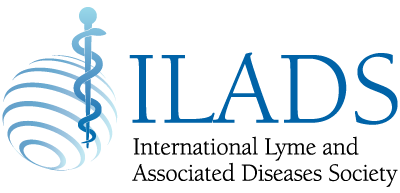 Naturopathic (Natural) Medicine
Naturopathic (Natural) Medicine
& How it Can Help You
When You're not getting answers to your health issues, natural medicine could be the solution you have been searching for.
It’s an all-too-common scenario.
You’ve been suffering from a cocktail of vague and seemingly unrelated symptoms for months, even years now…fatigue, brain fog, aches and pains, memory loss, poor sleep, low libido, weight gain, food cravings, mood issues, skin rashes, hormone imbalances, headaches, or digestive problems.
You finally make an appointment with your doctor to get some answers (that Dr. Google can’t provide), only to be given a mere 15 minutes to rattle off your laundry list of complaints, desperate for some validation.
You’re given a prescription or two (that may cause a whole list of other symptoms) and sent home with the discomforting assessment that what you’re experiencing is “just a part of normal life” due to genetics or aging.
You leave feeling defeated, hopeless, and frustrated. Perhaps you then go from doctor to doctor, only to be told that you’re fine, there’s nothing wrong, and even worse…it’s all in your head.
Or, perhaps you have been diagnosed with:
-
-
- fibromyalgia
- IBS
- high cholesterol
- high blood pressure
- pre-diabetes or type 2 diabetes
- a reproductive issue
- or an autoimmune disease.
-
You are told the unsettling news that you can’t reverse the condition -- you simply have to take medication to manage it for the rest of your life and hope it doesn’t get worse.
Now what? A real solution when you feel like you are out of options
While these kinds of predicaments are common, they don’t have to be “normal”.
The good news is that while suffering from health issues seems isolating, you’re not alone. The better news is that there are solutions to identify and address the reasons why you’re suffering – because there are actual reasons.
The fact is, while the miracles of Western medicine are necessary for acute conditions, the methods used don’t address the myriad chronic conditions plaguing so many individuals on a day-to-day basis.
Thankfully, Naturopathic medicine is designed to do just this.
The approaches used not only prevent chronic conditions from developing in the first place, they effectively identify the root causes of symptoms and disease, rebalance the body at the foundational level, and promote healing and resolution, even reversal of health conditions – many of which are thought to be untreatable through the lens of conventional medicine, regardless of what your genetic predispositions may be.
The fact is, while the miracles of Western medicine are necessary for acute conditions, the methods used don’t address the myriad chronic conditions plaguing so many individuals on a day-to-day basis. Thankfully, Naturopathic medicine is designed to do just this.
How does Naturopathic Medicine Compare to Conventional Medicine?
Many people are familiar with the terms “Naturopathic Doctor” or “Naturopath” but may not fully grasp the breadth of their practice or what distinguishes them from conventional medical physicians.
According to the American Association of Naturopathic Physicians (AANP) and the Institute for Natural Medicine (INM), naturopathic medicine originated in the 1890s.
It has seen a recent surge in popularity due to a shift in consumer demand to resolve health issues holistically, drawing them towards naturopathy which uses prevention, wellness and respect for nature's inherent healing ability to restore and maintain health and prevent further illness.
Naturopathy minimizes standard medical treatments such as surgery and synthetic pharmaceuticals in lieu of natural approaches designed to resolve the underlying root causes of illness, without harsh side effects seen in conventional methods and using a personalized treatment plan.
The Core Principles of Naturopathic Medicine set it apart from the conventional medical paradigm in this manner and have contributed to its increasing demand:
-
-
- The Healing Power Of Nature
- Identify And Treat The Cause
- First Do No Harm
- Treat The Whole Person
- The Physician As Teacher
- Prevention is the Best Cure.
-
How the Core Principles of Naturopathic Medicine Guide Treatment
1. The Healing Power Of Nature
The body has an inherent ability to establish, maintain, and restore health by engaging the innate healing mechanisms. It is the role of the naturopathic physician to facilitate this natural process by fortifying the body’s vital life force, identifying and removing obstacles to health and recovery, and promoting a healthy internal and external environment for the body to heal. Multiple holistic treatment options are used to move the body toward health.
2. Identify And Treat The Cause
The underlying root cause of disease must be identified and removed for complete healing to take place. Illness does not occur without reason. Symptoms express the body’s attempt to heal but are not the cause of the illness. It is the role of the naturopathic physician to identify the root cause of the illness and treat it, which will alleviate the symptoms.
3. First Do No Harm
Illness is a purposeful process of the organism. The process of healing can cause the manifestation of symptoms, which are an expression of the body’s vital force attempting to heal itself. Any therapy that interferes with this natural healing process by masking or suppressing symptoms without removing the underlying cause is harmful and should be avoided. The natural life force of the individual must be supported to facilitate the healing process.
4. Treat The Whole Person
The core component of naturopathic medicine is the belief that health must go beyond the treatment of immediate symptoms as in allopathic medicine. Instead, the person is seen as a whole, involving many complex interacting facets. Thus, the treatment of the entire person (physical, mental, emotional, and spiritual) is necessary for recovery from and prevention of disease.
5. The Physician As Teacher
The cooperative relationship between doctor and patient is essential to healing. The physician’s major role is to educate and encourage the patient to be responsible for his or her own health.
6. Prevention is the Best Cure
The ultimate goal is prevention. Emphasis is on building health, not fighting disease. This is attained by building favorable internal and external environments for the body, assessing risk factors specific to each patient, and determining an individualized protocol to strengthen weaknesses and promote balance to ward off disease.
How are Naturopathic Physicians Trained and Regulated?
Like Medical Doctors (MDs), Naturopathic Doctors (NDs) have attended medical school and are trained and licensed as primary care family health physicians that work in either a clinical or office-based private practice. They are also accredited by the Council on Naturopathic Medical Education (CNME) which services North American naturopathic medical institutions, naturopathic educational programs, and post-graduate naturopathic residency programs and is recognized by the North American Board of Naturopathic Examiners (NABNE). Graduates from naturopathic medical schools must pass the comprehensive naturopathic physicians licensing examinations (NPLEX) to be licensed as primary care physicians. Candidates for full licensure must also satisfy all licensing requirements for the individual state or province in which they plan to practice.
Naturopaths are trained in all of the basic medical sciences that standard medical doctors are trained in. However, naturopathic physicians artfully blend modern, cutting-edge diagnostic, and therapeutic procedures with ancient methods. An individualized treatment plan integrates both traditional health care wisdom and the latest evidence-based research in order to restore, maintain, and optimize health naturally.
What Does a Naturopath Use in Treatment to Support Healing?
A naturopath understands that health is determined mostly by food, environmental, and lifestyle factors (up to 95%), which informs how they design a tailored treatment plan to facilitate healing. Naturopathy relies on these epigenetic factors to directly impact how our unique genetic predispositions towards certain diseases are expressed. This approach goes against conventional wisdom, underscoring the truth that we are not “doomed” according to our family history. Instead, the patient is empowered to take control of his or her health as a lifelong practice. Fostering education and sustainable changes in the person’s lifestyle habits are seen as essential to the process of healing and cultivating wellbeing.
Fostering education and sustainable changes in the person’s lifestyle habits are seen as essential to the process of healing and cultivating wellbeing.
Determining lifestyle factors that positively impact treatment outcomes allows naturopaths to effectively identify the imbalances that are the underlying root causes of disease.
Addressing these imbalances to restore function and rebuild health relies on a systems-biology approach, as seen in the modern functional medicine and psycho-endo-neuro-immunology (PENI) medicine paradigms.
Similarly, naturopathy acknowledges that everything is ultimately connected and interdependent.
Reflecting this understanding, naturopathic medicine incorporates diversified diagnostic and treatment tools that utilize integrative therapies and emotional/spiritual techniques to rebalance the whole person, which include:
-
-
- Lab testing
- Nutritional therapy
- supplementation
- physical manipulation
- psychological practices
- mind-body medicine tools
- botanical medicine
- homeopathy
- hydrotherapy
-
In addition, scientifically-backed and clinically proven anti-aging, regenerative medicine, and innovative techniques are showing promising results in the latest healing research:
-
-
- exosome therapy
- hyperbaric oxygen therapy
- functional medicine detoxification methods
- technologically advanced stress reduction practices
- platelet rich plasma therapy (PRP)
-
The collective use of these diverse treatment methods in naturopathic medicine focus on targeted ways to recalibrate the body systemically by:
-
-
- optimizing digestion and gut health/gut function
- restoring microbiome health
- addressing food sensitivities/allergies
- replenishing nutrient deficiencies
- supporting immune system function
- rebalancing hormones
- stabilizing blood sugar
- supporting nervous system health
- reducing/removing environmental toxic burdens and supporting natural detox pathways
-
Implementing lifestyle modifications such as optimizing sleep, exercise, stress reduction/stress management, cultivating healthy relationships and social networks, and improving mindset further promote healing and emphasize the whole-person approach to healing.
Let Food Be Thy Medicine And Medicine Be Thy Food: Using What We Eat to Promote Natural Healing

Foundational to the practice of naturopathic medicine is using food as a form of medicine to prevent, mitigate, and reverse health conditions at the source. This food-first, functional nutrition-based philosophy is at the core of total emotional, mental, and physical wellness. Adequate nutrition supplies critical factors to build tissues and conduct physiological processes so the body can heal and function optimally.
Relying on an anti-inflammatory, low glycemic, clean, whole-foods diet is essential to mind and body health.
Vital nutrients are essential to cellular function which dictates how our entire body functions and ages. Food is the #1 way to change our genetic expression, prevent and reverse chronic illness.
Nutrigenomics positions food as the primary environmental input that can either cause disease or promote health, as nutrients and substances in food serve as information that determines physiological function and programs your genes.
What we consume on a daily basis is essentially a potent drug that acts either like poison or medicine in your body.
What we consume on a daily basis is essentially a potent drug that acts either like poison or medicine in your body.
For example, refined carbohydrates, starches, sugar in its many forms, and processed packaged foods are toxic to the body and contribute to immune system imbalances and massive inflammation.
This leads to pervasive chronic diseases like hypertension, hypercholesterolemia, metabolic syndrome, diabetes, obesity, Alzheimer’s and dementia, and autoimmunity.
Conversely, essential fatty acids, fiber, and phytonutrients found in whole foods like fruits, vegetables, nuts, seeds, legumes, and high-quality protein sources build healthy cells and reduce inflammation and aging and promote detoxification, brain health, gut health, hormone balance, weight management, blood sugar regulation, energy, etc.
Overall, Naturopathic medicine relies on proper nutrition to prevent the development of disease and promote well-being, vitality, and longevity.
What Kinds of Things Can Naturopathic Medicine Help to Resolve?
The naturopathic approach is known to successfully treat patients with the following chronic conditions/diseases/symptoms (plus numerous others):
-
-
- Acne
- Allergies (environmental & food)
- Asthma
- Autism and neurodiversity
- Add and ADHD
- Bronchitis
- Lyme disease and co-infections (babesia, Bartonella, mycoplasma, Ehrlichia, anaplasma)
- Obesity and weight loss issues
- Diabetes (type 1 & type 2)
- Insulin resistance and pre-diabetes
- Metabolic syndrome
- Autoimmune disease
- Hypertension (high blood pressure)
- Hypercholesterolemia (high cholesterol)
- High triglycerides
- Fibromyalgia (FMS)
- Chronic fatigue syndrome (CFS)
- Ulcerative colitis
- Crohn’s disease
- IBS
- PMS
- PMDD
- Depression
- Anxiety
- Insomnia
- Hypothyroidism
- Parkinson’s disease
- Psoriasis
- Osteoporosis
- Hot flashes
- Memory issues
- Vaginal atrophy
- Low libido
- Hormonal imbalances
- Prostate enlargement
- Systemic or vaginal yeast infections
-
Naturopathic Medicine is Lifestyle Medicine
“Health care providers and medical organizations must transform their current model into systems that provide preventive care and early detection as an integral part of standard medical practice.”
-ACS/ADA/AHA Scientific Statement
 Naturopathy identifies how a minor imbalance within the body can produce a biological snowball effect impacting overall physiological function.
Naturopathy identifies how a minor imbalance within the body can produce a biological snowball effect impacting overall physiological function.
This eventually leads to poor health and chronic illness. Research shows that chronic diseases are caused by our daily lifestyle habits – what we eat, movement and exercise, sleep patterns, how we handle stress, work, our mindset, environment, and our relationships and social networks.
Naturopathic medicine enlists evidence-based and clinically proven “Lifestyle Medicine” approaches to relieve symptoms, restore optimal function, and promote overall health by rebalancing the body.
Most chronic conditions associated with aging are NOT inevitable consequences of the aging process. Research shows that up to 70% of doctor visits have a predominantly lifestyle-based cause, and that “Therapeutic Lifestyle Changes”, or “Lifestyle Medicine”, can resolve them.
This is validated by numerous national health organizations and associations, who recommend 12 weeks of lifestyle behavior modification to be the “first line of treatment” for conditions most doctors see every day.
Lifestyle Medicine is endorsed by the following medical organizations:
As Dr. Myriah Hinchey ND, owner and Medical Director of TAO Vitality in Hebron CT states:
“Diseases are just clusters of symptoms caused by some disruption in the body’s biochemistry. Once the cause is identified and this disruption is corrected the body will heal itself. I focus on assisting the body to function at its optimal potential for health. These diseases are your body’s way of telling you that you are doing something wrong. Either you are not getting enough of what your body needs to function properly or you are getting something that is acting like a poison in your body. It’s really that simple.”
Naturopathic medicine does not treat disease – it treats the cause of the disease.
With that, symptoms – like the ones you have likely been suffering from – often go away naturally as the body is primed for a healing state using integrative methods and lifestyle modifications. Even more, both lifespan and healthspan improve as well.
If you are sick and tired of being sick and tired or feel like you aren’t being given the attention or support you deserve from your current health practitioners, know that real solutions are available as an alternative to conventional band-aid treatments.
If you are ready to make lasting changes that can reverse conditions you thought you simply had to live with, consider working with a Naturopathic doctor and discover how to experience healing, wellness, and a better quality of life.
To schedule in-person or Telehealth appointments, or for lab testing and to purchase supplements, please access our new patient form or call 860.228.1287 for both in-person and telehealth appointments.
We expressly deny that the information being provided is intended to assist in the curing, diagnosis, prevention, or treatment of disease. You should always talk with your personal medical professional to discuss what treatments are safe and effective for your own medical needs.
 Naturopathic medicine was established in the eighteenth and nineteenth centuries and has its origins in the Nature Cure movement of Europe. The term was coined in 1895 by John Scheel and popularized by Benedict Lust, the “father of U.S. naturopathy.” Naturopathic philosophy favors a holistic approach and minimal use of surgery and drugs.
Naturopathic medicine was established in the eighteenth and nineteenth centuries and has its origins in the Nature Cure movement of Europe. The term was coined in 1895 by John Scheel and popularized by Benedict Lust, the “father of U.S. naturopathy.” Naturopathic philosophy favors a holistic approach and minimal use of surgery and drugs.
Naturopathy comprises many different treatment modalities. The naturopathic physician uses gentle methods to boost the body’s vital ability to heal and maintain itself, including nutritional supplements, herbal remedies, proper diet, and exercise to restore health. The doctor works with the patient to educate him or her on ways to restore and maintain a healthy balance in the internal environment that will prevent further illness.
Acupuncture
 Acupuncture, one of the main forms of therapy in traditional Chinese medicine (TCM), has been practiced for at least 2,500 years. In acupuncture, certain points on the body are stimulated by the insertion of fine needles. Unlike the hollow hypodermic needles used in mainstream medicine to give injections or to draw blood, acupuncture needles are solid and extremely smaller in diameter.
Acupuncture, one of the main forms of therapy in traditional Chinese medicine (TCM), has been practiced for at least 2,500 years. In acupuncture, certain points on the body are stimulated by the insertion of fine needles. Unlike the hollow hypodermic needles used in mainstream medicine to give injections or to draw blood, acupuncture needles are solid and extremely smaller in diameter.
According to TCM, energy (or Qi) moves through the body along 14 main pathways, called meridians. Each meridian corresponds to a different organ system and emotion. It is believed that imbalances in Qi are the root of disease. When the flow of Qi along one or several of the meridians is obstructed, an imbalance occurs in the rest of the body and the result may be disease or injury. By stimulating key points in the body, acupuncture seeks to restore balance to the normal energy flow and, consequently, to relieve pain or treat disease. Disease doesn’t exist where Qi flows smoothly and evenly.
It is well documented that the stimulation of acupuncture points affects both central and peripheral nervous systems. It also triggers the release of endorphins and enkephalins, chemicals that have pain-relieving properties similar to those of opiates.
The exact mechanism by which acupuncture works is not known, but studies have demonstrated a variety of physiologic effects, such as release in the brain of various chemicals and hormones, and alteration of immune function, blood pressure, and body temperature.
Patients generally complain of little or no discomfort from the needles.
To book an appointment for acupuncture click here.
Botanical Medicine
 Botanical medicines, when administered properly and in designated therapeutic dosages, can be effective, trigger fewer side effects for most patients than pharmaceutical drugs, and are generally less costly than prescription pharmaceutical drugs.
Botanical medicines, when administered properly and in designated therapeutic dosages, can be effective, trigger fewer side effects for most patients than pharmaceutical drugs, and are generally less costly than prescription pharmaceutical drugs.
The benefits of botanical medicine may be subtle or dramatic, depending on the remedy used and the illness being addressed. Herbal remedies usually have a much slower effect than pharmaceutical drugs. Some herbal remedies have a cumulative effect and work slowly over time to restore balance; others are indicated for short-term treatment of acute symptoms. Botanical medicine may be especially beneficial when administered to help with ongoing chronic symptoms.
Botanical treatments are generally accepted as part of mainstream medical treatment around the world, except in the United States, where herbal remedies are sold as dietary supplements. As of 2003, the branch of the FDA that regulates botanical products under the rubric of dietary supplements is the Center for Food Safety and Applied Nutrition (CFSAN). Under the Dietary Supplement Health and Education Act of 1994 (DSHEA), the manufacturer of a botanical preparation is responsible for ensuring that it is safe before marketing it; the FDA is responsible for taking legal action if the product proves to be unsafe after it is marketed. The other government agency that has some oversight over botanical preparations in the U.S. is the National Center for Complementary and Alternative Medicine (NCCAM) of the National Institutes of Health, established by an act of Congress in 1998. NCCAM also supports research into botanical products, herbalism, and other alternative therapies that make use of plant-derived products.
For this reason, Dr. Hinchey only recommends and use supplements and botanical medicines that undergo rigorous third-party laboratory testing for quality control and are sold only to licensed physicians.
Therapeutic Massage
 The practice of kneading, or manipulating, a person’s muscles and other soft tissue with the intent of improving a person’s well-being or health, for stress reduction, detoxification, and many other health benefits. Find more information here.
The practice of kneading, or manipulating, a person’s muscles and other soft tissue with the intent of improving a person’s well-being or health, for stress reduction, detoxification, and many other health benefits. Find more information here.
Nutritional Counseling
 Nutritional deficiencies rob the body of its own natural resources and can manifest as symptoms, such as fatigue, mood swings, and insomnia. Many times, these symptoms are taken for granted as a natural sign of aging. When left unchecked, however, these same deficiencies can contribute to such diseases as arteriosclerosis, high blood pressure, diabetes, and arthritis.
Nutritional deficiencies rob the body of its own natural resources and can manifest as symptoms, such as fatigue, mood swings, and insomnia. Many times, these symptoms are taken for granted as a natural sign of aging. When left unchecked, however, these same deficiencies can contribute to such diseases as arteriosclerosis, high blood pressure, diabetes, and arthritis.
Scientists now recognize that even mild nutritional deficiencies can create subtle symptoms of disease. It has been found that through detoxification, dietary improvements, and nutritional supplementation, the signs of deficiency can be eased, thus alleviating the sub-clinical symptoms being experienced.
For more detailed information on targeted functional medicine nutrition services, or to book an appointment click here.
1. The healing power of nature (Vis medicatrix naturae)
The body has an inherent ability to establish, maintain, and restore health. The healing process is ordered and intelligent; nature heals through the body’s vital life force. It is the role of the naturopathic physician to facilitate this natural process by identifying and removing obstacles to health and recovery and to promote a healthy internal and external environment for the body to heal. Principles needed to heal include adequate sleep, exercise, proper nutrition and, if needed, herbs which can move the body toward health without common side effects posed by some synthetic pharmaceuticals.
2. Identify and treat the cause (Tolle causam)
The underlying root cause of disease must be identified and removed for complete healing to take place. Illness does not occur without reason. Symptoms express the body’s attempt to heal, but are not the cause of the illness. It is the role of the naturopathic physician to identify the root cause of the illness and treat it, which will alleviate the symptoms.
3. First do no harm (Primum non nocere)
Illness is a purposeful process of the organism. The process of healing can cause the manifestation of symptoms, which are an expression of the body’s vital force attempting to heal itself. Any therapy that interferes with this natural healing process by masking or suppressing symptoms without removing the underlying cause is harmful and should be avoided. The natural life force of the individual must be supported to facilitate the healing process.
4. Treat the whole person (Tolle totum)
The core component of naturopathic medicine is the belief that health must go beyond treatment of immediate symptoms as in allopathic medicine. Instead, the person is seen as a whole, involving many complex interacting facets. Thus, treatment of the entire person (physical, mental, emotional, and spiritual) is necessary for recovery from and prevention of disease.
5. The physician as teacher (Docere)
The cooperative relationship between doctor and patient is essential to healing. The physician’s major role is to educate and encourage the patient to be responsible for his or her own health.
6. Prevention is the best cure
The ultimate goal is prevention. Emphasis is on building health not fighting disease. This is attained by building healthy internal and external environments for the body, assessing risk factors specific to each patient, and determining an individualized protocol to strengthen weaknesses and promote balance to ward off disease.
The Council on Naturopathic Medical Education (CNME) was established in 1978 to serve as an accrediting agency of North American naturopathic medical institutions, naturopathic educational programs, and post-graduate naturopathic residency programs (including postgraduate training in naturopathic family care and other specialties) in the United States and Canada. CNME is recognized as an accrediting agency for four-year naturopathic colleges and programs of study in the United States and Canada, by American and Canadian national naturopathic professional associations, and by the North American Board of Naturopathic Examiners (NABNE).


Naturopathic physicians are licensed as primary care physicians in many states and complete a four-year graduate-level course at a naturopathic medical school. Naturopaths are trained in all of the basic medical sciences that traditional medical doctors are trained in, along with spinal manipulation, acupuncture, nutritional medicine, botanical medicine, functional medicine, homeopathy, hydrotherapy,  pharmacology, psychology, and counseling.
pharmacology, psychology, and counseling.
Graduates from naturopathic medical schools must pass the comprehensive naturopathic physicians licensing examinations (NPLEX) to be licensed as primary care physicians. Candidates for full licensure must also satisfy all licensing requirements for the individual state or province in which they plan to practice. Today’s naturopathic physicians artfully blend modern, cutting-edge diagnostic and therapeutic procedures with ancient and traditional methods. They offer the world a healing paradigm founded on a rational balance of tradition, science, and respect for nature.
There Are Many Different Perspectives And Ways To Practice Naturopathic Medicine. This Is How We See It:
Patients often call the office and ask if we treat a particular disease and the truth is that we do not treat disease at all. I treat the cause.
Diseases are just clusters of symptoms caused by some disruption in the body’s biochemistry. Once the cause is identified and this disruption is corrected the body will heal itself.
I focus on assisting the body to function at its optimal potential for health.
This usually begins with optimizing gut function including identification of any food sensitivities/allergies, restoring beneficial flora, and replenishing nutrient deficiencies.
There really isn’t any “disease” that you can’t cure when you help the body to heal itself and restore optimal functionality.
These diseases are your body’s way of telling you that you are doing something wrong. Either you are not getting enough of what your body needs to function properly or you are getting something that is acting like poison in your body. It’s really that simple.
Successfully Treated Diseases/Symptoms
All of that being said, we have successfully treated patients who have come in with the following diseases/symptoms:
- acne
- allergies (environmental & food)
- asthma, autism, ADHD
- bronchitis
- Lyme (& co-infections)
- obesity
- Diabetes (type 1 &type 2)
- insulin resistance/pre-diabetes
- metabolic syndrome
- autoimmune disease
- hypertension,
- hypercholesterolemia
- high triglycerides
- fibromyalgia
- chronic fatigue syndrome
- ulcerative colitis
- Crohn’s disease
- IBS
- PMS
- PMDD
- depression
- anxiety
- insomnia
- hypothyroid
- Parkinson’s disease
- psoriasis
- osteoporosis
- hot flashes
- memory issues
- vaginal atrophy
- low libido
- hormonal imbalances
- prostate enlargement
- systemic
- vaginal yeast infections.
Food First!
You will hear me say over and over again that you are what you eat. Literally! If you constantly put crap into your body you will make crappie cells and feel like crap! If you put photochemical rich foods into your body, you will make high quality cells that function at their maximum capacity. Your body can only function as well as the cells you are made from.
We believe that foods act either like poison or medicine and there really are no neutral foods.
Food Poisons
Refined carbohydrates and processed foods filled with sugar (POISONS) cause depression of the immune system and massive inflammation which leads to chronic diseases like hypertension, hypercholesterolemia, metabolic syndrome, diabetes, obesity, and autoimmunity.
Food Medicines
High-quality protein, essential fatty acids, and phytochemicals found in whole foods like fruits, vegetables, nuts/seeds, legumes, and certain high-quality animal proteins (MEDICINES) build your cells right so they function optimally, your body makes anti-inflammatory compounds and you actually prevent the development of disease, plus you feel great.
Depression & Anxiety Example
3 things we frequently see in my practice that are some of the most common reasons for depression and anxiety:
- Not enough essential fatty acids (MUFA and omega 3 FA)
- Not enough essential amino acids (proteins) especially in vegetarian/vegan population
- Nutrient deficiencies (esp. Vit D and Methyl B12 & Methyl Folate in those who have MTHFR SNP)


